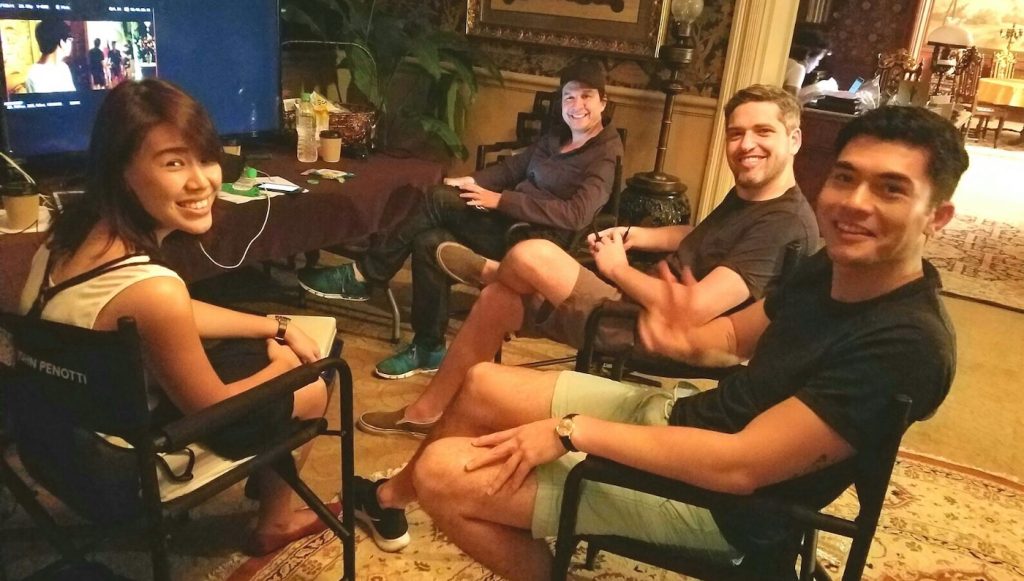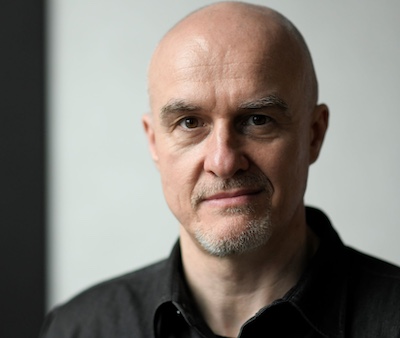Crime, Crazy Rich Rom-Coms, and More: Producer Janice Chua on Bringing Asian Stories to the World
Raised in a working-class Chinese family in Singapore, Janice Chua says, “Like every Asian person, I grew up with Hong Kong martial arts movies that inspired so much of my imagination. There was a sense of excitement and pride in those action-heavy films with crazy sound effects.”
But her world changed when she encountered Ang Lee’s Crouching Tiger, Hidden Dragon, which “just came across as very poetic…and the way women were portrayed was very different. They were nuanced and had agency. It was also a very non-Hong Kong movie in the sense that it wasn’t in Cantonese or dubbed.”
Chua immediately began searching for film schools in Singapore, and discovered there was only one at the time, giving her a straightforward decision on the first step toward fulfilling her dream.
“Watching that movie gave me an awareness whereby you never see things the same way again,” she said. “I thought, how does one go about producing something like that that can have an impact on other people? I just decided that whatever that job is, I want to be that person.”
Chua did what lots of filmmakers must when they start their careers: she improvised. “I know how to hustle,” she said, and she worked as a freelance editor while taking her filmmaking diploma. The experience she had gathered by the time she graduated meant she was trusted with working as an assistant on hour-long TV programs soon afterward.

Deciding she wanted to complete a full degree, Chua expanded her education. “Singaporeans are overachievers,” Chua said, and she took a bachelor of fine arts in creative producing at Chapman University (Singapore), again editing on the side to pay the bills. She finished her course in 2011, just as China’s box office takings were surpassing $2 billion and attracting more and more attention from Hollywood.
Singapore is a melting pot of cultural and linguistic influences (it has four official languages: English, Malay, Singaporean Mandarin, and Tamil). Chua was schooled in English but “grew up speaking Chinese; my parents made sure that I kept my mother tongue intact throughout my education.”
A booming film industry with global ambitions and an ambitious bilingual and bicultural filmmaker was the perfect match, so Chua decided to head to Beijing in 2012. Despite her Chinese roots, there were some stark differences from what she had experienced growing up.
“In Singapore, everything was very designed and engineered; we have a plan for everything. In China, it was like, let’s go and see where things fall. It was stressful in the sense that the industry was so new,” Chua says. “So, I felt like we were defining the standards in the industry as we went along. It was also refreshing because it meant the room to grow was just exponential. It was the best thing for a person to experience in their 20s.”
An early major project was Legend of Kung Fu Rabbit, the first Chinese animation to get a wide international release.
Moving to Beijing Galloping Horse in 2016, Chua had the “once in a lifetime experience” of working with “the godfather of action movies” John Woo, handling international assignments such as accompanying him to the Russian premier of The Crossing. Woo and long-time collaborator Terence Chang acted as something akin to mentors to Chua, “very nurturing, very kind.”
During her time there, an offer came in from Ivanhoe Pictures, but Chua had reservations about leaving Beijing and moving to LA. “Terence told me that as exciting as China was in terms of opportunities, I ought to learn how a mature system functions. He said, you know that that system is in America.”
Arriving in Hollywood, Chua faced multiple preconceptions. While few would argue East Asia is a gender equality Utopia, female executives are common in the entertainment business across most of the region.
“In China, my direct boss, meaning the CEO of the film division, was female. Then, the CFO of the film studio was also female. And you see women producers; there is a bit of a lack of representation among directors, but you do see female business leaders.”
She felt women were less visible in LA; then, some assumptions came with her ethnicity.
“Moving to the States, I never thought one bit about me being a woman and certainly never thought about me being Asian because I grew up in and worked in Asian-majority countries.”
Chua credits her boss at the time for changing perceptions by introducing her at meetings as someone who had worked at a big Beijing studio, worked with John Woo, and whom he had hired to ramp up his Asian business. Then, she had to adjust to the idea that stories about non-white characters were still seen as something of a niche business.
“To me, telling Asian stories felt natural because I grew up with Asian stories.”
Chua says that she had to learn about Asian American culture, which was partly born from different experiences to her own. All of this came together in her work on Crazy Rich Asians.
“I really saw that as a privilege,” Chua says. “We needed it to be a commercial success and make people understand that minority stories aren’t always about immigrant stories. You can have a love story, too; we can fall in love and be crazy and be rich, too.”
Deciding to take a career break after the film’s success and reflect on where she was headed, Chua was approached by a few companies, including Imagine, which was looking to create more international content. This was not an opportunity Chua felt she could pass up, joining at the beginning of 2019. Highlights included executive producing the award-winning Taiwan Crime Stories, Imagine’s first Asian series. Utilizing up-and-coming writers and directors, the series benefited from local production subsidies, allowing it “to take bets on young talent,” says Chua.
At the beginning of this year, Chua decided to strike out as an independent producer, though she still has a producing arrangement with Imagine, which is not going to waste.
Projects announced already include the Hong Kong-Taiwan-Malaysia co-production Mrs. Killer, about a retired assassin-housewife who goes back to work; the Taiwan-South Korea co-production Oppa, I Hate You; and Boy From Andaman, a film set in India that will also feature a cross-border production team.
Chua was recently in Tokyo exploring a potential Hong Kong-Japan-US co-production that would use the expanded incentives announced last year for international shoots in Japan. Unsurprisingly, she has more up her sleeve, including a new independent production company with like-minded folk.
She will be on the lookout for the kinds of stories that have always inspired her. “A small story with a big heart because those are the kind of stories that allow me to take a chance on new talent.”
For more interviews with filmmakers and producers taking big swings in Asia, check these out:
From Mumbai to Batam: The Unexpected Journey of Dev Patel’s “Monkey Man”
Benetone Films Co-Founder Kulthep Narula on Taking Thailand’s Film Industry to the Next Level
Pioneering Producer Auchara Kijkanjanas on Animating Thailand’s Entertainment Industry
Reimagining Korea’s Dynamic Film & TV Industry With Wow Point Executive Producer Yoomin Hailey Yang
Featured image: Caption: A scene from Warner Bros. Pictures’, SK Global Entertainment’s and Starlight Culture’s contemporary romantic comedy “CRAZY RICH ASIANS,” a Warner Bros. Pictures release. Photo Credit: Courtesy of Warner Bros. Pictures



